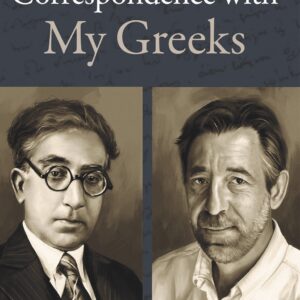How many times a day do you say “okay”? Or text “OK”?
Countless, right? That’s what got me noticing the many discussions of “okay” as I browsed H. L. Mencken’s The American Language, Fourth Edition (1936) and his 1945 Supplement to The American Language. (These tomes have been on my shelf for decades, but I only recently decided to read them, as I noted in a previous post.)
There’s no question that O.K./okay is an American coinage, going back to the mid-nineteenth century. I’ll touch below on the various theories of its origin, but first I want to give some evidence of what Mencken calls its “success.” In fact, without intending any hyperbole, he claims that O.K. is “the most successful abbreviation ever coined, whether in the U.S. or elsewhere.”
Here’s just some of the evidence that Mencken offers for O.K./Okay‘s success in the U.S. by 1936:
—It’s the name of “a series of popular phonograph records, and of many shoe-shining parlors, lunch-rooms and hot-dog stands.”
—Company names include:
Okey [sic] Hosiery Company
Okay Electric Company
Okay Food Sales Company
Okay Manufacturing Company
Okay Supply Company.
Mencken also quotes a 1929 newspaper article saying that in the U.S. “O.K. is used not less than a million times a day.… It is used in official business at Washington and in the Army and Navy, in the Ford plant, on the railroads…” Mencken adds that “The figure mentioned by this writer seems to be too modest. According to [the president] of the Peerless Motor Car Corporation, ‘a half million O.K.’s are included in every motor car built.'”
Meanwhile, in England, telegraphers as early as 1873 were using O.K. as a signal that a message had been clearly received. Then when “talking movies” from the U.S. began to be imported, British youth replaced the English righto with O.K.—despite the futile “protests from patriots and pedants,” Mencken adds. By 1932 the patriots and pedants had clearly lost out. For on April 18, 1932, the London bureau of the United Press reported: “One English columnist the other day made four telephone calls to different numbers and in each case the conversation ended with O.K. from the person at the other end.” Then in 1935 even the government took a stand: the Privy Council’s Judicial Committee decreed that inscribing O.K. upon a legal document “meant that the details contained…were correctly given.” And the following year the Edinburgh Evening News described O.K. as “now universal” in Great Britain.
O.K. was so attractive that it was grabbed up beyond the English-speaking world. In the Spanish civil war, for instance, American volunteers there “found that it had displaced salud as a greeting among the village children.” And as American troops spread over the globe during World War II, they heard O.K. nearly everywhere. An American prisoner of war in Japan said it was “used by every guard in their Davao prison-camp.”
No wonder Mencken rates O.K. “an American masterpiece.”
But where did it come from? No one knows for sure. This shouldn’t surprise me, because years ago, when my husband and I were compiling current clichés for a little book, we found that their origin (usually unknown anyway) was less important than what inspires people to grab them up.
The same applies to the slang term Okay—though I’m still astonished by how many theories of its etymology have been offered. Mencken lists ten in the 1936 edition of The American Language, including these proposed derivations:
—”from the initials of one Obediah Kelly, an early railway freight-agent, who signed them to bills of lading.”
—”from Keokuk, the name of an Indian chief from whom the town of Keokuk, Iowa, was named. His admirers called him Old Keokuk, and usually added ‘He’s all right!,’ and so Old Keokuk, and finally the simple initials, came to mean the same thing.”
— “from omnis korrecta, supposed to have been once used by schoolmasters in marking examination-papers.”
—and what strikes me as the most absurd of the derivations: “from the terminology of the early shipbuilders, who fashioned the timbers of their ships under cover, marked each one for identification, and then began the actual building by laying O.K. (outer keel) No.1.”
But then in the 1945 Supplement, Mencken excitedly records the following:
“The long battle over O.K.‘s etymology came to a dramatic end on July 19, 1941, when Allen Walker Read published in the Saturday Review of Literature an article (“The Evidence on O.K.“) which…brought forward a body of evidence that was new, sound and precisely to the point.” The evidence: O.K. first appeared in print on March 23, 1840, in “the name of the Democratic O.K. Club, an organization of supporters of Martin Van Buren for a second term in the White House” as “an abbreviation of Old Kinderhook, the name of the Hudson Valley village in which he had been born.… Who thought of reducing the name to O.K. is not known but it was in accord with the liking for secrecy and mystification that marked the politics of the time. The term O.K. “caught on at once. It was brief, it had a masculine and even bellicose ring, and it was mysterious enough to have a suggestion of the sinister.”
It’s an intriguing story, but I’m not convinced. How could this political association have morphed into the perkily affirming O.K./Okay that has long been the term’s general meaning?
Curious about how current dictionaries handle the term, I looked it up in my Mac computer’s internal dictionary. They buy the Old Kinderhook origin story. But what caught my attention more was the extraordinary range of parts of speech given for OK (the periods are now dispensed with). OK/Okay is listed as:
—an “informal exclamation used to express assent” as in “OK, let’s go”
—an adjective, as in “the flight was OK”
—an adverb, as in “My phone is finally working OK”
—a noun (singular), as in “Did you get an OK?”
—a verb (OKs, OKing, OK’d or OKed), as in “Please OK my travel dates”
Is there another English word that, without changing it at all, can be an exclamation, adjective, adverb, noun, and verb?
But as I’m bopping along here with “OK,” I hear you muttering: “Okay, enough already with this okay-business.”
My humbled response:
“Okay. I’ll stop.”
Peggy Rosenthal has a PhD in English Literature. Her first published book was Words and Values, a close reading of popular language. Since then she has published widely on the spirituality of poetry, in periodicals such as America, The Christian Century, and Image, and in books that can be found here.





